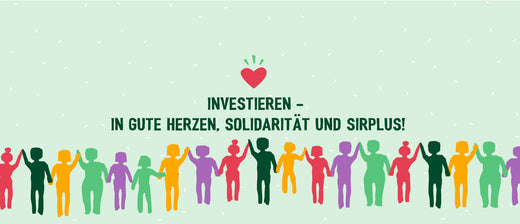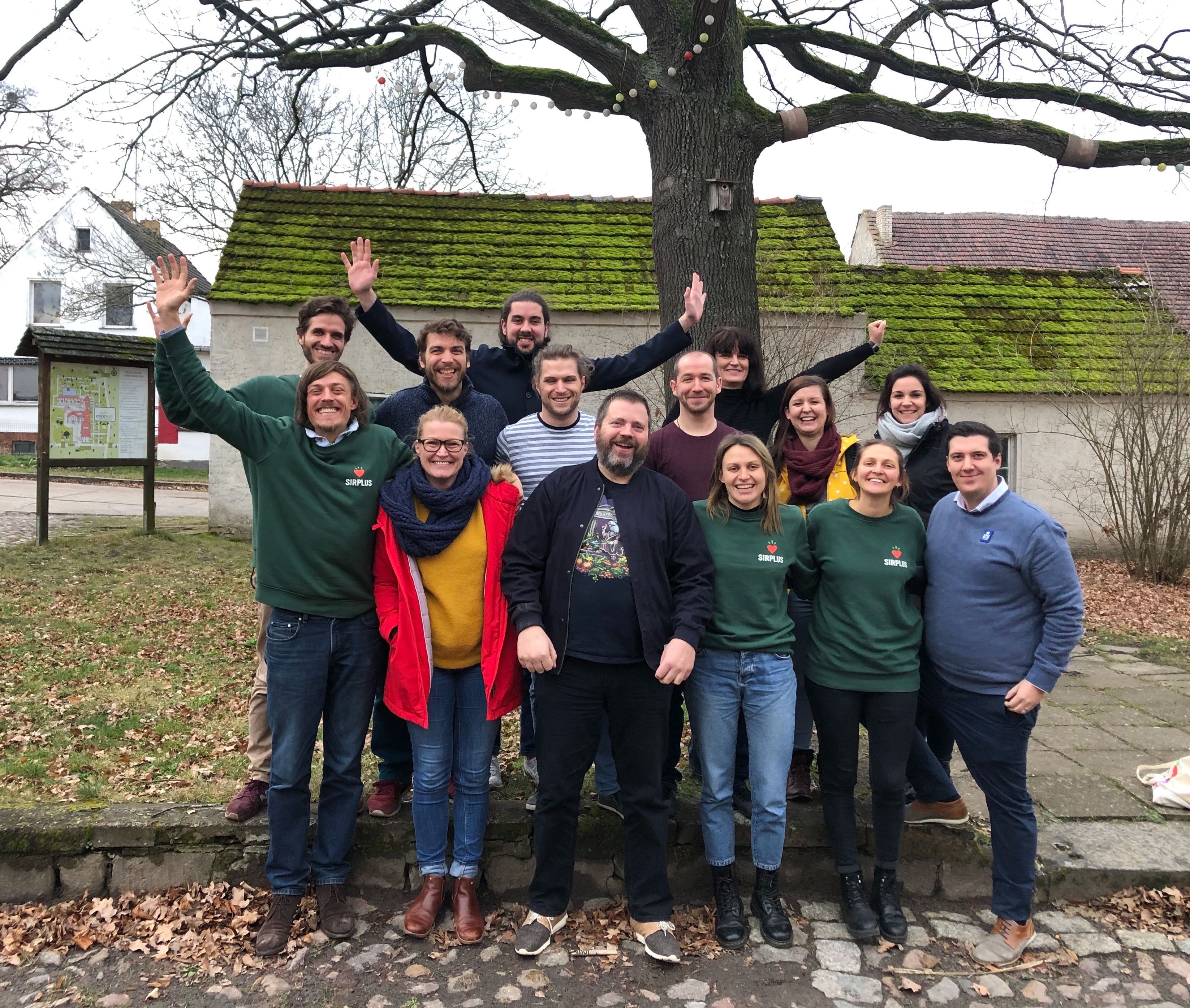foodsharing and SIRPLUS share common goals
Every year, 18 million tons of food end up in the trash in Germany. Of this, 10 million tons could be avoided. In other words, 10 million tons of edible food, into which a great deal of valuable resources have already been invested, end up in the bin along the value chain.
With such incredible amounts of food waste, it's simply impossible to save it all alone. Fortunately, there are other organizations and partners, such as foodsharing , TooGoodToGo , food banks , and RESTLOS GLÜCKLICH (Completely Happy). This blog post will focus on foodsharing – the powerful online platform for distributing surplus food!

What is foodsharing?
Raphael (co-founder of SIRPLUS) launched the food rescue movement back in 2012 during his five-year money strike , which later merged with foodsharing. The registered association has since successfully saved nearly 30 million kg of food from being thrown away at over 6,000 businesses . Currently, there are an average of 2,772 "rescue missions" per day . During these missions, volunteer food savers collect surplus food from bakeries, kiosks, market stalls, and supermarkets. Our SIRPLUS food savers also rescue food that is no longer saleable but still edible, storing it in our rescue markets and warehouses.
There are now approximately 69,000 food savers . Food savers volunteer their time to rescue food by visiting cooperating businesses in their free time to combat food waste.
However, there is also the option of becoming a food sharer . This means being active on the foodsharing website and thus having the opportunity to snag one of an average of 500-800 food baskets per week. These food baskets are offered by private individuals, for example, when they change their diet or go on vacation but still have surplus food.
Another innovation from foodsharing is the " Fair-Teiler" (Fair Sharer ). These are sometimes publicly accessible refrigerators and shelves where rescued food from foodsharing's cooperation partners (such as SIRPLUS) or from private individuals ends up.

Why is it picked up at SIRPLUS?
Basically, we deal a lot with food – whether packaged goods or fruits and vegetables – that has already expired or can no longer be sold elsewhere due to freshness issues. Therefore, it naturally happens that we, too, have food items that can no longer be sold because they have too many flaws, even for our most tolerant customers. Highly perishable foods that have reached their use-by date (as opposed to the best-before date) cannot be sold in our rescue markets at all, as the chance of them becoming inedible is too high. That's why we have to remove these items from our shelves 1-2 days before the use-by date. However, we place great importance on not letting anything go to waste and are therefore delighted that foodsharing is already collecting food from almost all of our locations.
How do such “rescue operations” proceed?
To participate in foodsharing as a so-called Foodsaver, you first have to pass a quiz and complete trial pickups. Once you are officially a Foodsaver, you can register with a business via the foodsharing platform and then sign up for a pickup there.
Depending on the amount of food to be rescued, several food savers arrive at once to divide it among themselves. Many food savers also collect food several times a week. This quickly fosters a sense of community among the food rescuers. They know each other and exchange information about ways to distribute the food. For example, much of the food is taken to neighborhood gatherings, soup kitchens, or community food-sharing initiatives .
Why isn't SIRPLUS a competitor to foodsharing?
SIRPLUS and foodsharing work very closely together, including within the Food Rescue Alliance . This alliance aims to actively bring food rescue into the political arena in order to raise even greater awareness of the issue.
Foodsharing is a volunteer movement. SIRPLUS, on the other hand, was founded with the idea of rescuing food on an even larger scale, exceeding the capacity of foodsharing: Our goal is therefore not, as with foodsharing, to supplement food banks on a small scale, but to rescue food from large companies where food banks cannot (due to capacity constraints or because the food is nearing its expiration date). In both foodsharing and SIRPLUS, food banks always have priority.
We are proud of everything foodsharing has achieved, but we want to take bigger steps in the fight against food waste. We collect quantities from producers and wholesalers that require significant logistical effort and cannot be managed by private individuals alone. Foodsavers focus more on smaller businesses such as bakeries, market stalls, and supermarkets.
What can you do now?
Are you now also motivated to become a food sharer or food saver?
Then register at www.foodsharing.de !




